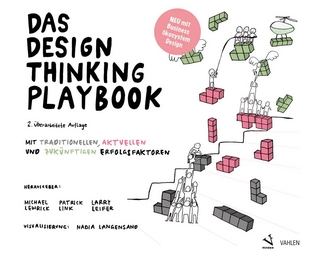
Interdependent Human-Machine Teams
Academic Press Inc (Verlag)
978-0-443-29246-0 (ISBN)
- Noch nicht erschienen (ca. Januar 2025)
- Versandkostenfrei
- Auch auf Rechnung
- Artikel merken
William Lawless is professor of mathematics and psychology at Paine College, GA. For his PhD topic on group dynamics, he theorized about the causes of tragic mistakes made by large organizations with world-class scientists and engineers. After his PhD in 1992, DOE invited him to join its citizens advisory board (CAB) at DOE’s Savannah River Site (SRS), Aiken, SC. As a founding member, he coauthored numerous recommendations on environmental remediation from radioactive wastes (e.g., the regulated closure in 1997 of the first two high-level radioactive waste tanks in the USA). He is a member of INCOSE, IEEE, AAAI and AAAS. His research today is on autonomous human-machine teams (A-HMT). He is the lead editor of seven published books on artificial intelligence. He was lead organizer of a special issue on “human-machine teams and explainable AI by AI Magazine (2019). He has authored over 85 articles and book chapters, and over 175 peer-reviewed proceedings. He was the lead organizer of twelve AAAI symposia at Stanford (2020). Since 2018, he has also been serving on the Office of Naval Research's Advisory Boards for the Science of Artificial Intelligence and Command Decision Making. Ranjeev Mittu is the branch head for the Information Management and Decision Architectures Branch within the Information Technology Division at the U.S. Naval Research Laboratory (NRL). He leads a multidisciplinary group of scientists and engineers that conduct research and advanced development in visual analytics, human performance assessment, decision support systems, and enterprise systems. Mr. Mittu’s research expertise is in multi-agent systems, human-systems integration, artificial intelligence (AI), machine learning, data mining and pattern recognition; and he has authored and/or coedited nine books on the topic of AI in collaboration with national and international scientific communities spanning academia and defense. Mr. Mittu received a Master of Science Degree in Electrical Engineering in 1995 from The Johns Hopkins University in Baltimore, MD. Don Sofge is a computer scientist and roboticist at the Naval Research Laboratory (NRL) with 33 years of experience in artificial intelligence, machine learning, and control systems R&D. He leads the Distributed Autonomous Systems Group in the Navy Center for Applied Research in Artificial Intelligence (NCARAI), where he develops nature-inspired computing paradigms to challenging problems in sensing, artificial intelligence, and control of autonomous robotic systems. He has more than 180 refereed publications including 10 books in robotics, artificial intelligence, machine learning, planning, sensing, control, and related disciplines. Hesham Fouad is the section head for the Intelligent Decision Support Section within the Information Technology Division at the U.S. Naval Research Laboratory (NRL). Dr. Fouad has over 35 years of experience as a Computer Scientist working in both industry and academia. He began his career at IBM Advanced Technologies where he worked on the first commercially available expert system development and runtime environment. Expert System Environment (ESE) was developed through a collaborative effort between the AI team at Stanford University and IBM. Dr. Fouad worked with the Stanford team to integrate new capabilities into ESE such as Frame Based Reasoning. Dr. Fouad also worked with the Voice Recognition group, led by Kai-Fu Lee, at Carnegie Mellon university to transition their S&T into IBM’s Via Voice product. Finally, Dr. Fouad worked with the MIT media lab’s Project Athena group on a collaborative effort to integrate a Hypermedia capability into the OS/2 operating system. Dr. Fouad left IBM to pursue a Doctoral Degree in Computer Science at The George Washington University where he conducted his dissertation research on optimal real-time scheduling algorithms for Imprecise Computations using a fair scheduling strategy. This work was the basis of a startup company that Dr. Fouad founded and ran for 13 years. During that time, Dr. Fouad developed and managed the production of a line of commercial software for synthetic spatial audio design and production. He also conducted research on, and managed several ONR funded BAA and SBIR awards on adaptive training in virtual environments during that time. Dr. Fouad maintained his involvement with academia both as an adjunct professor at the George Washington University, and as chair of a newly created undergraduate degree program in Computer Science with a focus on Game Development at the Art Institute of Washington. Since joining NRL, Dr. Fouad has led numerous efforts with three transitions to-date. He has procured millions in funding from Navy, Marines, Army, and OUSD sources. He has mentored SEAP students and has taken on a variety of roles within The Technical Cooperation Program.
1. Introduction
2. Persistent Homology & Multi-Agent Team Efficiency
3. AI Insights from the Cognitive Sciences
4. Designing Artificial Ethical Minds
5. Action, Ecology and The Science of Life
6. Safety Framework for Human-Machine Learning
7. Autonomy: Evidence from Robotics
8. Autonomous Human-Machine Teams: Data Dependency and AI
9. 'Human-AI Teaming’. A Review of the National Academies of Science Report
10. Late Binding Dependence in Collaborating Systems
11. Leveraging Manifold Learning and Relationship Equity Management for Symbiotic Explainable AI
12. Understanding Interference Within and Between Human-Machine Teams
13. AI Trust Framework and Maturity Model
| Erscheint lt. Verlag | 1.1.2025 |
|---|---|
| Verlagsort | San Diego |
| Sprache | englisch |
| Maße | 152 x 229 mm |
| Gewicht | 450 g |
| Themenwelt | Informatik ► Software Entwicklung ► User Interfaces (HCI) |
| Informatik ► Theorie / Studium ► Künstliche Intelligenz / Robotik | |
| ISBN-10 | 0-443-29246-9 / 0443292469 |
| ISBN-13 | 978-0-443-29246-0 / 9780443292460 |
| Zustand | Neuware |
| Informationen gemäß Produktsicherheitsverordnung (GPSR) | |
| Haben Sie eine Frage zum Produkt? |
aus dem Bereich


